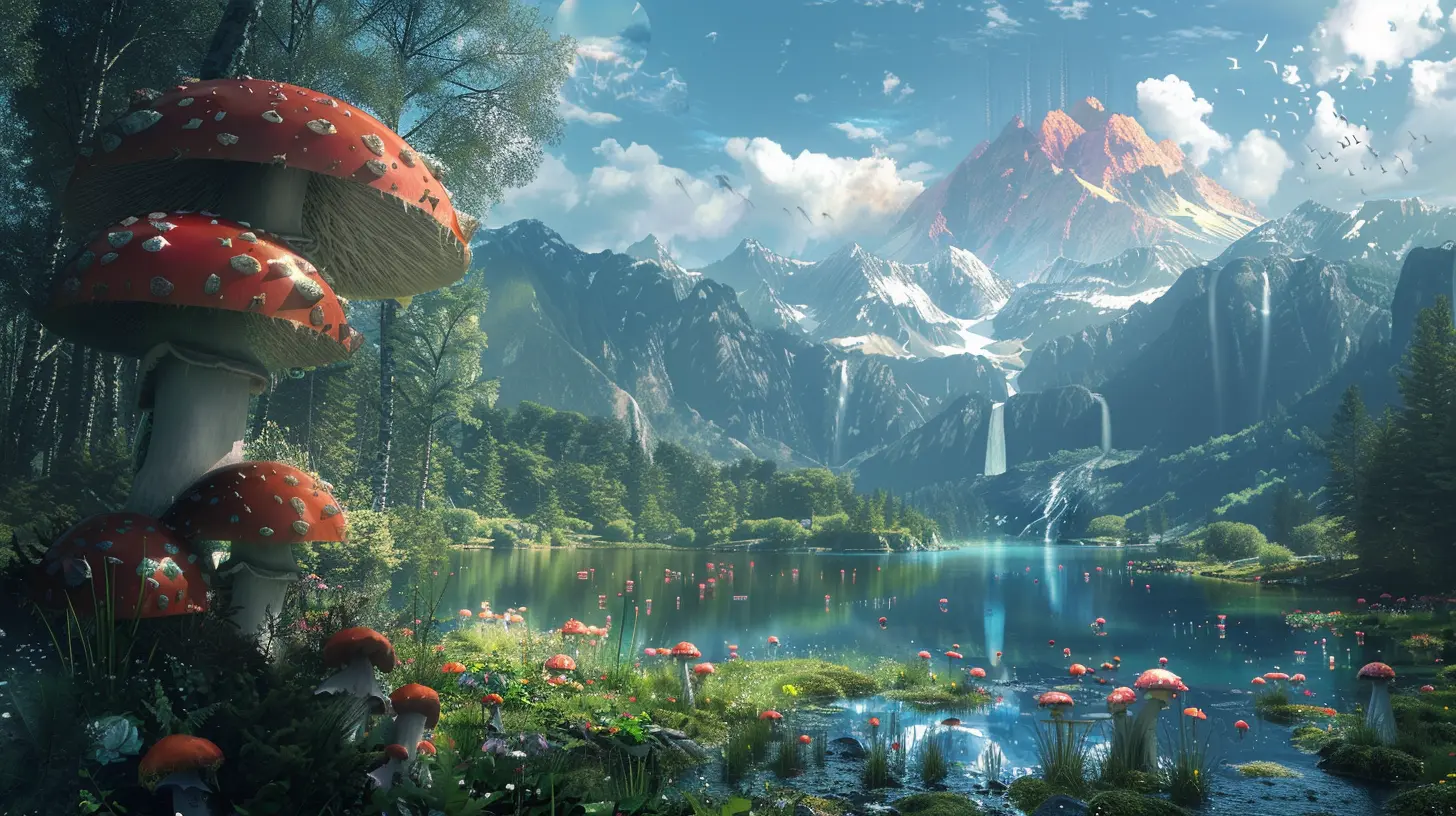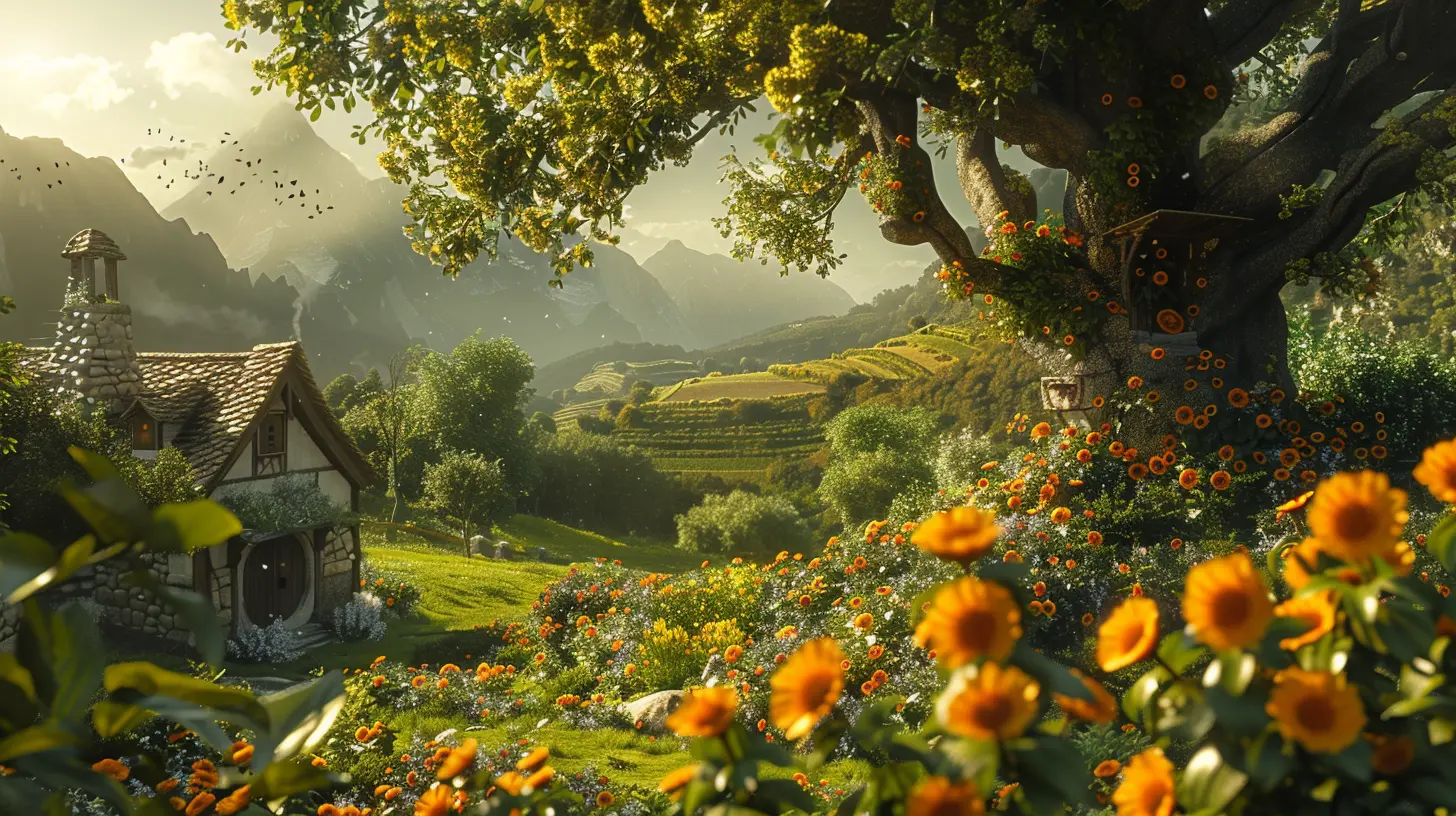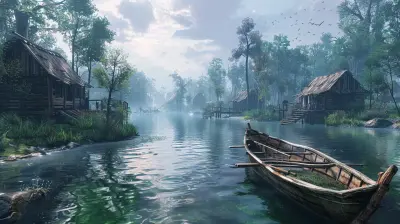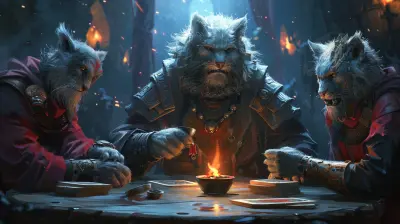How Games Are Changing the Way We Tell Stories
9 June 2025
Storytelling has always been a cornerstone of human interaction. From ancient cave paintings to campfire tales, radio dramas, books, and blockbuster films, narratives are how we connect, learn, and make sense of the world. But something fascinating is happening — video games are flipping the storytelling playbook on its head. They’re not just telling stories; they’re letting us live them. Let’s dive into how games are reshaping the way we experience and create narratives. Spoiler: It’s pretty mind-blowing.
The Evolution of Storytelling in Games
When most people think of video games, they tend to visualize fast-paced action or high-stakes competition. Fair enough. Pong didn’t exactly scream "deep narrative," did it? But as technology has evolved, so has the ability of video games to tell immersive, dynamic stories.Back in the ’80s and ’90s, storytelling in games was often an afterthought. Games like Super Mario Bros. tossed in a plotline ("The princess is kidnapped, go save her!") to give players a reason to jump through colorful levels. It worked, but let’s be honest, it wasn’t exactly Shakespeare.
Fast forward to today, and titles like The Last of Us, Red Dead Redemption 2, and God of War rival — if not outshine — Hollywood blockbusters in terms of storytelling. These games aren't just about reaching the end; they’re about the journey. And instead of watching someone else’s story unfold on a screen, you, the player, are at the heart of the narrative.
Interactivity: The Game-Changer
Here’s the big twist: Video games make you an active participant, not just a passive observer. That’s their secret sauce. Think about it — when you’re reading a book or watching a movie, the story moves forward whether you like it or not. But in games? You call the shots.You’re not just a spectator — you’re the hero, the villain, the detective, the survivor. Your choices directly impact how the story unfolds. Games like Mass Effect or Detroit: Become Human thrive on this dynamic. Choose to save one character over another, and the ripple effects will completely alter your story. It’s a choose-your-own-adventure on steroids.
And let’s not overlook the freedom games provide. Sandbox-style games like The Elder Scrolls V: Skyrim or Minecraft allow players to craft their own stories. Sure, there’s a main plot, but many gamers end up spending hours forging their own narratives — building homes, befriending NPCs, or even wreaking havoc. It’s storytelling without limitations, and that's incredibly powerful.
Emotional Depth: Games That Make You Feel
Let’s get real for a second: Modern games can be emotional wrecking balls. They have the unique ability to make you feel deeply connected to characters and worlds in ways other mediums simply can't.Take The Last of Us, for instance. The series doesn’t just tell a story about a post-apocalyptic world filled with infected monsters; it’s about love, loss, and everything in between. You feel Joel and Ellie’s bond not because the game tells you to, but because you live it. Every step, every conversation, every choice you make as Joel or Ellie builds that connection. By the time the credits roll, you’re emotionally spent, and that’s exactly the point.
Games also excel at putting you in someone else’s shoes. Titles like Hellblade: Senua’s Sacrifice use innovative audio design and gameplay mechanics to simulate the experience of living with psychosis. It’s not just storytelling — it’s empathy-building. And that’s something no book or movie can replicate quite as effectively.
The Rise of Non-Linear Narratives
Remember when storytelling was all about a straight line? Beginning, middle, end. Done. Video games, however, laugh in the face of linearity. Many games now embrace non-linear storytelling, where the narrative branches off in different directions based on the player’s decisions.Games like The Witcher 3: Wild Hunt or Until Dawn epitomize this. The choices you make can send you on entirely different narrative paths. Maybe you chose to trust an ally who ends up betraying you, or you saved a village only for it to face repercussions later. These non-linear stories keep you on your toes, making every decision feel weighty. Plus, they add replayability — you’ll want to go back and see how things could have turned out differently.
And let’s not forget procedural storytelling. Games like No Man’s Sky or Dwarf Fortress generate unique worlds and narratives on the fly, ensuring no two playthroughs are the same. It’s storytelling, but with an algorithmic twist.
The Art of Environmental Storytelling
Not all stories need to be explicitly told through dialogue or cutscenes. Video games excel at what’s known as environmental storytelling — where the world around you tells a story without saying a single word.Take Dark Souls, for example. The game doesn’t spoon-feed you a narrative. Instead, it drops you into a mysterious, desolate world filled with cryptic clues and hidden lore. You piece together the story by exploring, observing your surroundings, and listening to faint whispers of exposition. It’s storytelling through atmosphere, and it’s ridiculously effective.
Similarly, in Bioshock, just walking through the underwater city of Rapture tells you everything you need to know about its rise and fall. The cracked glass windows, deranged inhabitants, and eerie remnants of a once-thriving utopia paint a vivid narrative. It's like archaeology, but instead of digging up fossils, you're uncovering fragments of a story.
The Community Factor: Collaborative Storytelling
Gaming has always been a social experience, but today, it’s taking storytelling to a whole new level. Multiplayer games and online communities are giving rise to collaborative storytelling, where players create their own narratives together.Take Minecraft roleplay servers or Grand Theft Auto Online. Players band together to build sprawling cities, act out intricate storylines, or even create original content within the game world. These aren’t just games anymore; they’re platforms for shared creativity.
Then there’s the phenomenon of live-streaming. Platforms like Twitch allow players to share their in-game experiences, turning their stories into a form of entertainment for thousands, if not millions, of viewers. In some cases, players are even influencing the story by engaging in real-time with chat or playing alongside viewers. It’s storytelling in the age of the internet, and it’s wild.
Games as a Conduit for Personal Narratives
Here’s the kicker: Games don’t just tell their stories — they help you tell yours. Think about games with open-ended or creative elements, like The Sims or Animal Crossing: New Horizons. These games don’t have a strict narrative, but they give you the tools to create your own.Maybe you use The Sims to reenact your dream life (complete with a perfect house and no student loans). Or maybe you pour hours into customizing your island in Animal Crossing to reflect your personality. These are deeply personal stories, and the games don’t just allow them — they encourage them.
The Future of Game Storytelling
So, where do we go from here? The possibilities are endless. With advancements in virtual reality (VR) and artificial intelligence (AI), games are on the verge of storytelling breakthroughs we can’t even fully imagine.VR games like Half-Life: Alyx already place players inside the story like never before, making you feel like you’re physically there. Meanwhile, AI is being used to create more dynamic, responsive narratives. Imagine a game where every character reacts in real-time to your actions, or a story that evolves based on your playstyle. That’s not science fiction anymore — it’s within reach.
Wrapping It Up
Video games aren’t just entertainment — they’re a revolution in storytelling. They’ve turned us from passive consumers into active participants, and in doing so, they’ve unlocked new ways to feel, connect, and create. Whether you’re saving the world, unraveling mysteries, or crafting your dream life, games are giving us stories that are uniquely ours. And honestly? That’s pretty magical.all images in this post were generated using AI tools
Category:
Interactive StorytellingAuthor:

Kaitlyn Pace
Discussion
rate this article
3 comments
Quillan McGrath
This article brilliantly highlights how video games are revolutionizing storytelling. By merging interactivity with narrative depth, they create immersive experiences that engage players like never before. It's exciting to see how this medium is expanding the boundaries of traditional storytelling and fostering emotional connections.
June 23, 2025 at 2:42 AM

Kaitlyn Pace
Thank you! I'm glad you found the article insightful. Video games truly are transforming storytelling in unique ways!
Raelyn McKinney
Interactive narratives redefine storytelling.
June 13, 2025 at 3:29 AM

Kaitlyn Pace
Absolutely! Interactive narratives allow players to influence the story, making them active participants and creating a deeper emotional connection to the characters and plot.
Sandra McDaniel
Games innovate storytelling by blending interactivity and narrative, allowing players to engage emotionally while shaping their own unique experiences within dynamic worlds.
June 11, 2025 at 4:10 AM

Kaitlyn Pace
Absolutely! Games offer a unique platform for storytelling, merging narrative depth with player agency, creating immersive experiences that resonate emotionally and personally.



